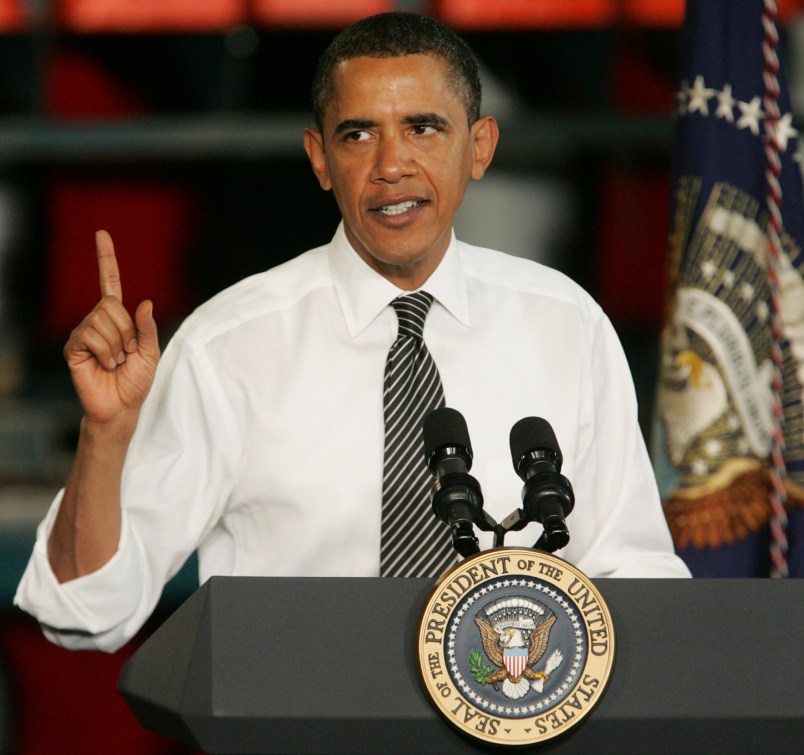When President Obama announced that he would open vast swaths of America’s coastline up to offshore drilling, the media, and even some of Obama’s greatest allies were quick to point out that he’d reversed an early campaign pledge.
“What wouldn’t do a thing to lower gas prices is John McCain’s new proposal — a proposal adopted by George Bush as well — to open up Florida’s coast line to offshore drilling,” Obama said on June 20, 2008, standing in front of a Florida shoreline. “Offshore drilling would not lower gas prices today. It would not lower gas prices tomorrow. It would not lower gas prices this year. It would not lower gas prices five years from now.”
A few weeks later, Obama acknowledged he’d consider opening up more drilling as part of a comprehensive energy and climate reform package. Then this week, ahead of an expected spike in summer gas prices, and with a broader climate and energy bill floundering in the Senate, Obama did what he originally said he wouldn’t do.
“You have some environmentalists who just said ‘don’t drill anywhere,’ and then you have got some of my friends on the Republican side who were saying, ‘well, this is a nice first step, but it is not enough, you should open up everything,'” Obama said at a town hall event today.
This flip flop has been rehashed dozens of times in the last two days. But what’s received less attention is a substantive question: Was Obama right in 2008? Or is he right now? Experts suggest the old Obama was right on the merits–but that he may be catching a bit more flack than he deserves.
“The administration did not do very much, Joe Romm, a former Clinton Energy Department official, and a senior fellow at the liberal-leaning Center for American Progress, told me today. “If you go to the Department of the Interior’s website, and see exactly what they did, they have opened up a bunch of areas to exploratory drilling. Not leases. They are giving out some leases. But the leases are what lets you have the big production.”
Obama’s decision, in other words, will largely allow companies to explore for new drilling sites–but will not allow them to do the massive production that would require the construction new pipelines and on-shore refineries. “The notion that they’re going to drill anytime soon off the coast of Virginia is ridiculous,” Romm said.
If Obama’s decision leads to the production of an additional half-million barrels of oil a day–an upper-bound estimate–it will do almost nothing for gas prices. “You would have zero impact on gas prices in 2020 and would lower gas prices $0.03 a gallon in 2030,” Romm estimated.
Compare half a million barrels to America’s daily consumption (20 million barrels) and world wide demand (80 million) and you’re not looking at a big dent at all. And the reality is that, with oil demand likely to rise in the future, and production peaking, this decision–whether Obama had been the one to make it or not–was perhaps inevitable.
These conclusions are echoed by David Victor, an energy expert at the University of California, San Diego. “Opening offshore is unlikely to be decisive,” Victor says in an email to me. “I would be surprised if it produced more than a million barrels per day in addition to the areas of the Gulf of Mexico that are already open for production. Probably production will be a lot less.”
“The first oil could be produced within a decade,” Victor added, “full scale production will probably require 15-20 years. Very little in the energy industry happens quickly.”
Victor notes as well that exploration in the approved areas is already viable from an economic standpoint. “It appears that much of the potential supply is already viable, though we won’t know until people look for oil in detail and get a sense of exactly what’s down there,” he says. “Oil prices are likely to stay high for the forseeable future, which means that many expensive technologies will be viable.”










